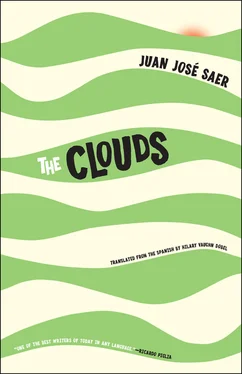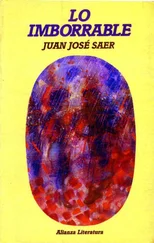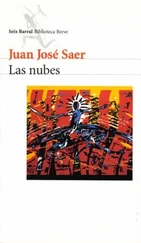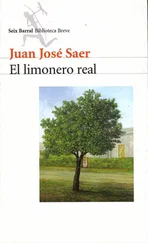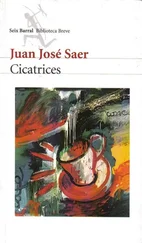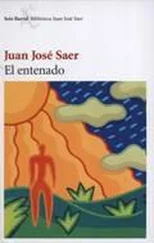To gain some clarity, I extricated myself from the woman, promising to handle the matter, as her rancor extended to the monetary side of things, and I went to see Sergeant Lucero. The slightly confused excuses I obtained perhaps proved that the French woman had not exaggerated, but when I called on him to show his usual sincerity, he confessed that he believed the rumors to have a grain of truth, but with all the soldiers implicated in the matter, it would be difficult to get the necessary clarifications from them. More than taking advantage, the sergeant told me, the soldiers seemed to protect and even obey her. He conveyed the sense that they quite revered her, though he knew not why; it was not she who instilled obedience in them, but they themselves who practiced it spontaneously and out of a deep respect that she seemed to inspire. Lucero was reasonable enough to see that the little nun, excellent person though she was, was mad, and that my medical obligation was to try to cure her of her madness and not to allow for half the world to become involved, and so we agreed to prevent, in the remaining days of travel, those unsavory complications from repeating.
The following day, after the celebration, it was laborious setting off, for at midmorning the soldiers were still asleep in the shade of the carts, as they had calculated the shadow’s morning path before turning in at dawn. No calculation of that sort had been allowed to the horses, and they lacked even a lone tree in that vast, empty space to seek protection in the shade. In the region, it is said that the San Juan summer reaches its peak intensity during those days. It had arrived gradually, in the early days surreptitiously melting the built-up frost from the first icy week after the rain and, as it warmed the earth and air, had evicted the impatient plant-life, a fleeting simulacrum of spring. From the gray ground, hardened with cold, the new grass began to sprout, greening the flatlands, but after just two days, almost within hours, the heat grew and so the tiny leaves began to flag, and the fields dried up again almost at once, transformed into a vast, yellowed expanse. For days we saw not a single cloud in the sky — a deep and troubled blue — nothing but the blistering sun, leaving earth, air, and everything exhausted and hot, and because no wind stirred, and the nights were as hot as the days, nothing had time to refresh itself. We crossed that great furnace in the coldest month of the year, a huge yellow circle we trekked through at such pains, locked beneath its blue dome with only the sun’s arid stain to travel it by day, blackened by night and filled with shining points, and for days it was the only scenery, so identical in every one of its interchangeable parts, that sometimes we were fooled into thinking that it had us bound, completely immobile. Movement seemed impossible past a certain time of day, but, as Osuna said, it was just as unfavorable to wait for dusk to travel when it was cool, first because to remain in the middle of the countryside, where we had no shade beyond what the wagons provided, was more grueling than travel, as our displacement might procure us some gust of air, laughable as it was, and in the second place because it did not cool sufficiently by night, but if we camped, the darkness, placing us under protection from the glaring sun for several hours, helped us to rest. With the heat, the silence of the empty countryside seemed to grow, as if all the species that populated it, unable to move, lay spent and lethargic. We too, who claimed to reign over them all, went about as if in sleep, men and women, civilians and soldiers, believers and agnostics, erudite and unlettered, mad and sane, made equal by that crushing light and the burning, brutal air that rubbed out our differences, reducing us to our equally feeble sensations. Shut in their wagons, the patients dozed all day and barely peeked out at night, save the little nun, who was always surrounded by her guard of soldiers, many of them almost completely naked, scarcely a pair of tight and tattered breeches to cover them from the waist to just above the knees, and which left visible through their holes certain parts of the body that would have been more prudent to keep hidden, giving them an indecent appearance — though no one took notice, and it even seemed respectable compared to the women, who, when it was hot enough, walked about with their breasts bared and sometimes completely nude. When we passed by a river, almost everyone undressed without even waiting for darkness, and went to frolic with animal pleasure in the lukewarm, cloudy water. The unusually prolonged trip had forced us, imperceptibly, to set our own standards of living, and the whims of the climate, which made the untimely seasons follow one another with the speed of days and hours, added to the singular composition of our caravan; we had had to create a peculiar universe, as time passed, stranger and stranger than our way of life before departure. Although authority was relaxed, it was plain to see it was no longer necessary: In the fever of those unreal days, ordinary interests seemed to have disappeared. Only a few grudges remained: Sirirí bitterly disapproved of our growing distance from the rules that had been instilled in him and which were his only reference for any possible world, and Suárez El Ñato, who did not stray from his master’s wagon, like a faithful but slightly addled dog, signaled with his resentful gaze that, in his opinion, it was I, and not insanity, who was responsible for Troncoso’s terrible collapse. But even his hatred, in that flat and yellow infinity, had lost its reins.
As Osuna announced the Santa Rosa storm for the thirtieth, we all kept watch for the saving clouds, eager but skeptical, to see if they were approaching our assembly from the southeast, laden less with water than with hope. But not a single cloud appeared in the first days of waiting. As we watched, the empty sky changed color with the passing light and lost its aura of familiarity, a consequence of our certainty that it had always been there; it became strange, and with it the yellow earth and all that spanned the visible horizon, including ourselves. The burnt and sweaty faces, in which the eyes were almost shrunken, mouth always open and brows always furrowed, expressed a constant questioning. At times we spoke little, exchanging shy monosyllables, and at others, usually in an aside among two or three, we exchanged long, fragmentary monologues, hurried and confused, as if in the plain’s monotony we had lost the instinct or notion that separates the inner from the outer, as if the language provided in this world had also been uprooted from us and would have spoken for itself, doing without the thought and will with which we had learned to employ it on first entering this world.
At last, one afternoon, the clouds began to come. As it was still early, the first ones were large and very white, festooned with rippling edges, and when they passed too low, their own shadow would obscure their underside, as seen from the ground. We hoped before long to see them go black and part from the horizon in an endless slate-gray mass, to blot out all the sky and spill forth with rain. But for two days they paraded past in the sky, frayed and mute, coming from the southeast as I think I have said, and disappeared behind us to some point at our backs on an already-traveled horizon. They changed shape and color with the hours of the day and, above all, they floated at different speeds, as if the wind, whose absence we suffered on the ground, abounded there above. Sometimes they were yellow, orange, red, lilac, violet, but also green, gold, and even blue. Although they were all similar, there did not exist, nor had there ever existed since the origins of the world, nor would there exist either until the inconceivable end of time, two that were identical. With their varied forms and the recognizable shapes they portrayed, which dissolved little by little until they no longer looked like anything, or even assumed a shape contradictory to the one they had taken a moment before, they made me feel like a spirit of history, one that would persist through time to change along with the clouds, with the same strange similarity of such things that vanish, in the very instant they arise, to that place we call the past, where no one ever goes.
Читать дальше
